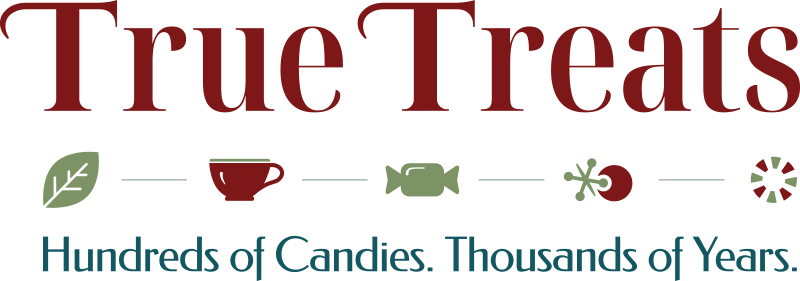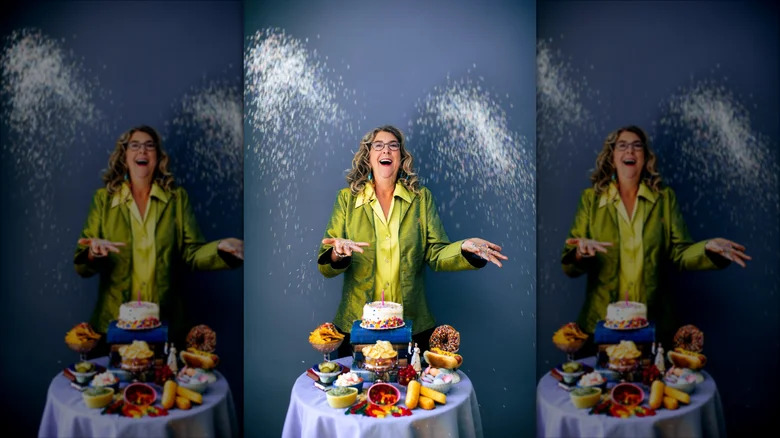Free Shipping on Orders over $49 (Retail Only)
Shop Now
- Address: 144 High Street Harpers Ferry, WV 25425
- Shop: 304.461.4714
- Orders: 304.535.8904

Here’s what tastingtable.com said about True Treats and Susan and their recent article: True Treats Candy Store In West Virginia Is Like A Walk Through Confectionery History:
From light-hearted childhood memories of Halloween to the sweet echoes of fleeting romance in the form of heart-shaped chocolate boxes, candy has long represented far more than a tasty confection. For Susan Benjamin of True Treats Historical Candy in Harpers Ferry, West Virginia, it’s a tangible chord to history. “Today, we love [candy], we fear it, and with it, we connect to our past,” Benjamin explains to Tasting Table.
Founded in 2010, True Treats is the only historical candy store in the United States that provides customers with a research-based educational confectionery experience. “Our web and brick-and-mortar stores are in chronological order, from prehistory to around the 1970s,” says Benjamin. “The story of each selection is on the label, and most of the images are also from the period of the product.” People travel far and wide to check out the shop — which is as much a history museum as it is a candy store. It was even featured as an answer to a question on “Jeopardy.”

So, what will you find in Benjamin’s store? Begin your journey in ancient times, witnessing everything from mastic resin — the first-ever chewing gum — to snacks eaten by Biblical figures and Native American barks. Fast-forwarding to the 17th and 18th centuries, treats like candied peels and petals make an appearance. The Industrial Revolution introduces mass-produced goodies before the 20th century concludes with the chocolate bar takeover. But these examples are just a drop in the bucket — Benjamin’s shop has over 600 products.
A quest inspired by women

Susan Benjamin’s historical candy career began with a passion for writing and research. Hailing from Massachusetts, she was a written communications professor in Boston before becoming an entrepreneur. After working on a writing-based initiative at the White House under Bill Clinton and, later, George W. Bush, she published nine books with a strong focus on business. “This led me to be interested in the relationship between language and women — especially the hidden messages depowering of women, so pervasive still today. And this led me to food, of course, and women’s honorable role in preparing and providing it.”
Eventually, upon hearing of her culinary studies, someone asked Benjamin about women’s historical connection to candy. Unfamiliar with the subject but a true researcher at heart, Benjamin got to work. She unearthed a world more extensive than what she had imagined. “I discovered the most amazing universe around, all about everything that matters — food, medicine, women at home, African American history, Biblical history, Native American foodways, business, immigration, and industrialization,” she details.
From there, Benjamin began selling her historical discoveries at museums and specialty shops, which led to the 2010 opening of her brick-and-mortar and online stores. When inquired about the type of research that goes into each product, she explained that she uses a combination of original sourcing, old cookbooks, historic context, and first-hand travel. Her original role of writing and research continues to fuel her fondness for educating on topics that matter to her.
The evolution of society’s relationship with candy

Naturally, when looking at True Treats’ candy collection of days gone by, we have to wonder how sugar’s role in the world has changed over time. According to Susan Benjamin, a lot of confections were originally medicines. For example, she informs us that Turkish delight was “made around the 10th century in the Arabic apothecaries as a medicine for sore throats, [and] it became the basis of the jelly bean and gummy candy.”
In the United States, the first commercial candy store was opened in 1800 by a woman named Mrs. Spencer — a single mother who was shipwrecked from England in Salem, Massachusetts. Her candy was sold from a horse-and-buggy, where she would hide escaped slaves and transport them to their destinations of freedom. Of course, The Gibraltar, as Mrs. Spencer’s candy was called, is now sold at True Treats.
Since its history involving everything from apothecaries to horse-drawn buggies, candy now plays a different part in our society. Benjamin contends that it has become a “corporate” thing, without many regional distinctions. Regardless of candy’s role in the modern day, True Treats is here to remind us that oftentimes, candy means much more than what meets the eye. Aside from learning about the origins of the treats, Benjamin remarks: “Above all, the products trigger memories of those who loved them when they were young, of special occasions, of friends from the past, and some of the happiest moments today.”
Read More: https://www.tastingtable.com/1481559/true-treats-candy-store-walk-through-confectionery-history/